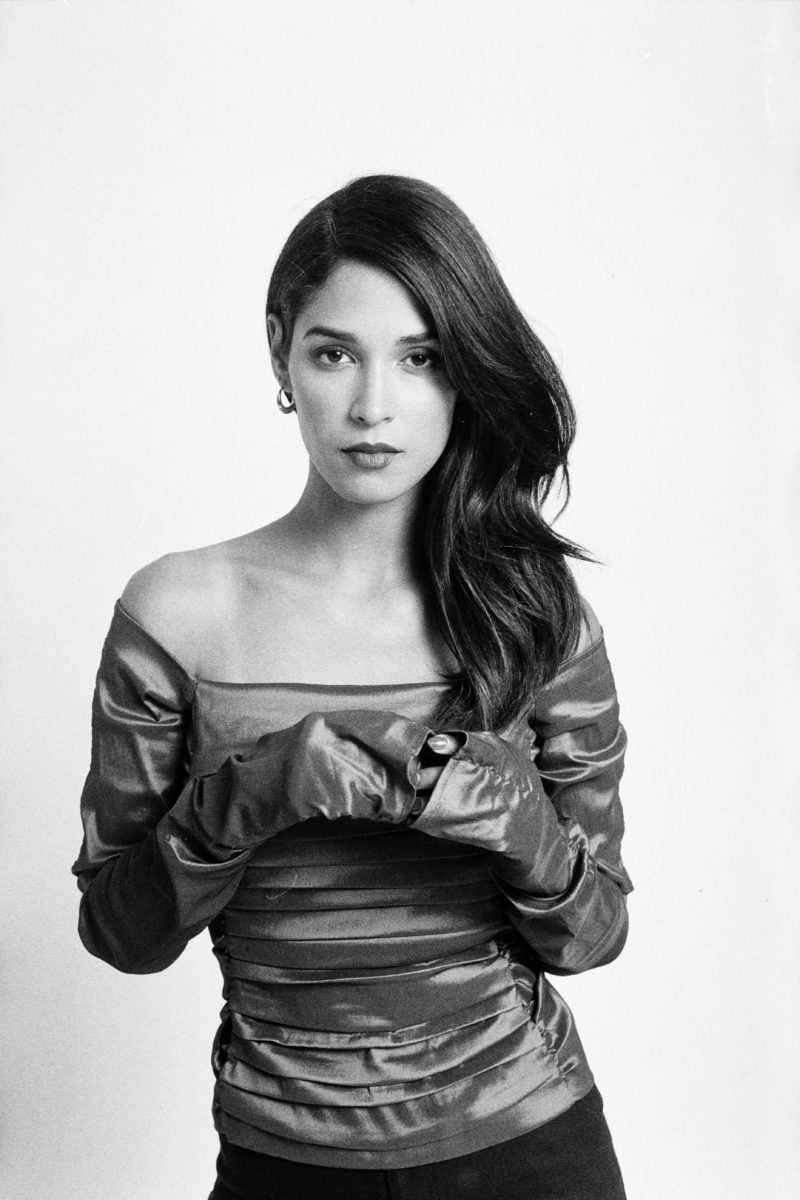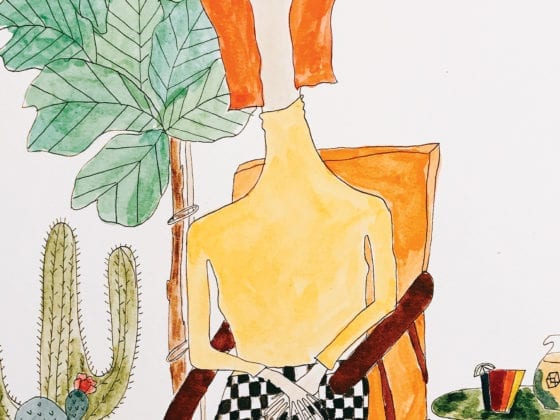“Real Women, Real Work” is a Darling series about everyday women who work in various fields including business, entertainment, science and education. We want to get to know the WHY behind their WHAT and get an inside look into different industries.
After five years of touring as a solo artist from 2010 to 2015, Moriah Smallbone had reached her limit. Music was her full-time job and every band member had a job on top of performing. Touring on the road became exhausting.
“Most people think touring is a glamorous thing, but even at the highest level, it is exhausting,” she said. “I overextended myself.”
At one point, Smallbone stretched herself so much so that she landed herself in the hospital for 11 days at the age of 20 for exhaustion. During this time, Smallbone learned invaluable lessons, lessons on managing stress and delegating to team members so that she could do the job that only she could do, bring her best to the stage.
“I had to learn to speak up for myself and to not be afraid of being labeled a diva [for voicing those needs],” she explained.
“I had to learn to speak up for myself and to not be afraid of being labeled a diva [for voicing those needs].”
In 2015, after two albums and years of touring, Smallbone took a much needed break to figure out what was next. It was on a trip to Israel where she climbed Mount Moriah, the mountain she was named after, where she realized that she was not done with music.
“All I knew was that I couldn’t quit,” she said. “I knew I wanted to impact culture through music.”
Her revelation was not that she needed to leave music, but instead that she simply needed to look toward the people who were already surrounding her. It was after her hiatus that the vision for the girl band TRALA was born.

Upon her return to the States, Smallbone invited longtime friends and bandmates pianist Jesi Jones and guitar player Julie Melucci into the writing process. The trio had innate chemistry, which translated from real life onto the stage and into the studio. The alternative pop group wrote, tracked and recorded all their own instruments for eight singles.
“I love partnering with friends, female leaders and fearless truth seekers in the songwriting process,” Smallbone explained. “TRALA is an outlet for me to share a platform with those who inspire me to push my own creative boundaries.”
Inviting Jones and Melucci into the creation process was just the first step for Smallbone, who continues to surround herself with other strong women. Even in her solo years, she traveled with a girl band, a unique attribute in a male-run industry.
“Having women around me was important, but it was also about giving them a chance,” Smallbone explained. “In the music industry, men take up the majority.”
“In the music industry, men take up the majority.”
“If there’s a woman on stage, then you know that she knows what it means to be marginalized,” she added.
When it comes to the band’s writing process, there are no rules other than an emphasis on truth and authenticity. Most of their songs come out of personal experience and talking about areas of life that people often don’t want to talk about.
Their music has been met with anticipation and an overwhelming response from fans. In January of 2017, the group put on a sold out show in their hometown of Nashville, Tennessee, proving to themselves that they had a message worth sharing.
Their song “Everything’s Cool,” the first song they wrote together as a band, is a sort of social commentary on today’s culture of presenting the “perfect,” plastic life, the highlight reel. The upbeat song is meant to make people think and to foster discussion on the importance of vulnerability when everything is not cool.
Another fan favorite, “W.H.A.T.,” which stands for “Where Have All The,” begs the question, “Where have all the good men gone?” The song was birthed out of a place of frustration and commentary on today’s culture and asks if there are any men who will honor and respect women.

Before a typical show, whether a one-off or on tour, Smallbone gets grounded and centered in order to be in the moment. She typically does a vocal warm up that is twice as long as the set itself. She and the band then take time to get together behind the stage, which she believes creates a camaraderie that translates onto the stage.
One of Smallbone’s priorities is to maintain an attitude of servant leadership. After a show, she helps with tear down and clean up.
“I become more grounded after the show when I can get my hands dirty,” she explained.
While fans only see the performance, the behind-the-scenes for TRALA and the crew can last upwards of 20 hours. Smallbone explained what a typical performance day might look like for her and her bandmates, all the way from a 4 a.m. drive to the airport to one-on-one meetings with fans to tear down after the show around midnight.
What motivates her through the long days? People.
“This job is too hard to do it for unsustainable reasons like self-gratification,” she said. “My sustainable reason is people.”
“This job is too hard to do it for unsustainable reasons like self-gratification,” she said. “My sustainable reason is people.”
Outside of music, Smallbone leads a monthly newspaper called “Lead Lady,” where she highlights women in leadership across different industries. Aimed at women with bold, unapologetic hope, the heart behind “Lead Lady” is to give a platform to women who are paving a way in law, politics, medicine, film and education and whose stories might not otherwise be told.
“My heart beats for women who are courageously stepping into spaces of influence and doing it with complete selflessness,” she said.
“My heart beats for women who are courageously stepping into spaces of influence and doing it with complete selflessness.”
Smallbone’s publication seeks to provide resources and tools for women in leadership. Recently, she went on a trip with Convoy of Hope to El Salvador where she was reminded of the importance of women in leadership. There, she met women who have learned different trades, started businesses and poured resources back into their families.
“Statistically, female leaders invest 90 percent of their income back into their families so we positively impact the economic state of a country when we raise up women,” she explained.
With a decade in the music industry under her belt, Smallbone encourages the importance of finding balance. She also emphasizes the value of men rallying around women in places of leadership. As a female artist, there were many experiences throughout the years where she felt mistreated and stereotyped because she is a woman, which led to resentment.
“Now, I am in a place, after being surrounded by men who have empowered me and allowed me creative freedom, where I have found balance—balance to serve and nourish out of love.”
For anyone who feels called to leadership, Smallbone said, “It is important to surround yourself with people who align with your core values.”
“Asking yourself what your core values are will influence the decisions you make,” she added. “It is so important to know who you are at your core in order to find people who align with that vision.”
For more on Smallbone and TRALA, follow them on Instagram or Facebook. Also, be sure to check out the video for TRALA’s latest song “Reverie.”
Feature image via Sam Street












2 comments
Going to give them a listen! Thanks for sharing! 🙂
–
Charmaine Ng | Architecture & Lifestyle Blog
https://charmainenyw.com
They’re so good! Our favorite song by them is W.H.A.T.! They have a new song out this week, Reverie.